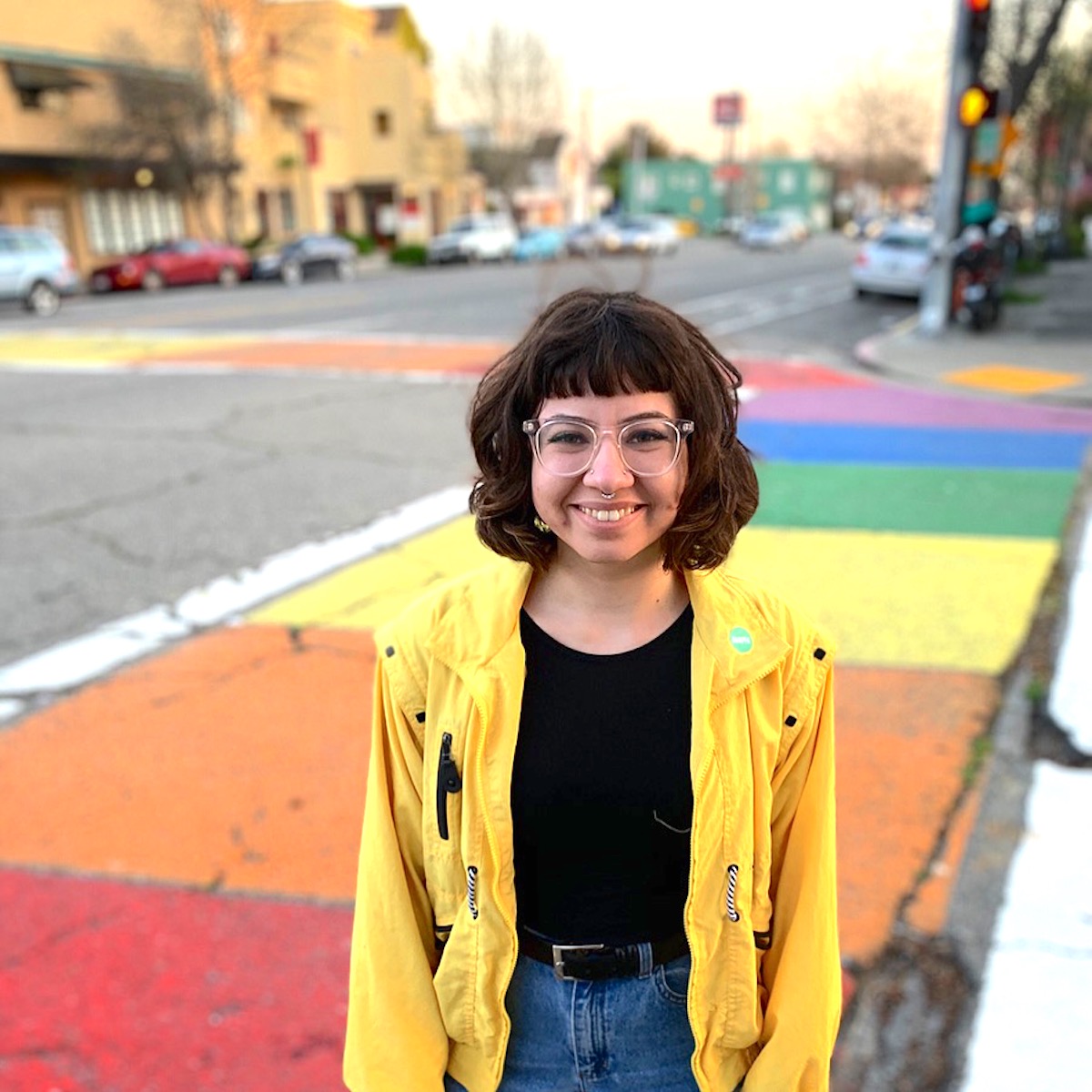By Mari Wrobi
It was my partner’s first Pride. He was new to identifying as bisexual and excited for the opportunity to exist in a space that was by and for people like him. It was my first Pride as a bisexual femme dating a cisgender man. It felt like new territory for us both. Him, dating someone who was nonbinary and bisexual and for the first time coming into his attraction to people other than cisgender women. Me, dating a man for the first time in my life after every Pride I’d ever attended before had been in the arms of a woman. Only, as someone who’d attended countless Pride events before, it didn’t feel that different to me. I was surrounded by people who loved me, I was loudly expressing my pride in being LGBTQ+, I was sharing a single space with my community, and I felt like I belonged.
It wasn’t until an after-Pride event that we attended that we were faced with a very challenging question. A friend of a friend looked us up and down, noted our intertwined hands and our overall closeness, and asked us, “Why are you here?” We were silenced by her question—confused by it, even—so she asked again. “Like, why did you come to Pride? Do you know someone who’s gay or something?”
That made it quite clear. Thankfully, someone pulled her away at that moment. But it left me thinking. As a bi person, was my inclusion in LGBTQ+ spaces always going to be questioned? Would I ever be able to exist in my relationship without feeling like it invalidated my experiences as a queer person? Was this person right, and were LGBTQ+ spaces not actually for me because of the way my relationship appeared?
It was this experience that led me to becoming a much more vocal bi activist than I’d ever been before. Previously, my bisexuality was almost an afterthought. An identity that didn’t shape or affect the way I existed in activist spaces, or anywhere else. It was a part of me, but a part that I very often overlooked so that I could talk about the other parts—like my identity as a person of color, as nonbinary, as femme, as intersex. I even identified myself as queer before identifying myself as bisexual, even though I preferred “bi” much more. But this experience was so subtle and so jarring that it made me realize why I needed to be a bi activist.
So… what does it mean, then, to be a bi activist?
To me, being a bi activist means being vocal about my bisexuality. It means that I don’t simply allow my bisexuality to be erased or forgotten. It means that every time I introduce myself in LGBTQ+ spaces, I introduce myself as bisexual too. Too often throughout LGBTQ+ history, bi activists are hailed as strictly gay activists or as gay people who changed their mind or as gay people with a straight past or as some other variety that translates to: ERASED. If my bisexuality is going to be erased from my activism, then I’m at least going to make it very hard to do so.
To me, being a bi activist also means normalizing the bi experience. Not just for other bi people, but for everyone. It means that not every bi person is going to have the same experience— and that’s okay. It means that bi people who only date people of the same gender or who only date people of a different gender are both equally bi. That bi people in relationships that look straight and cis and bi people in relationships that look traditionally queer are both still bi. That bisexuality does not hinge on someone’s relationship or lack thereof. That bi people who don’t fit any of the predetermined molds are no less bi because of it.
Being a bi activist also means overcoming the harmful stereotypes that are thrown at us and accepting those who “fit” these stereotypes. Not all bi people are confused—but some of us might be. Not all bi people are promiscuous—but some are. Not all bi people are attention-seeking—but some of us like to be the center of attention. Not all bi people are going through a phase—but phases aren’t necessarily a bad thing.
And that’s just the start.
To the untrained eye, it might seem strange that existing in a relationship deemed by much of the LGBTQ+ community as “not queer enough” is what propelled me into my bi activism. But it’s also what opened my eyes to the harmful ways that bi people are still treated in our community when we don’t fit the picture-perfect definition of what a bi person should be. So now, I won’t be quiet about allowing bi people—including myself—to exist exactly as we are.
Mari is a queer, trans, and intersex advocate from Sacramento, California—constantly challenging binaries, boxes, and bigots.

